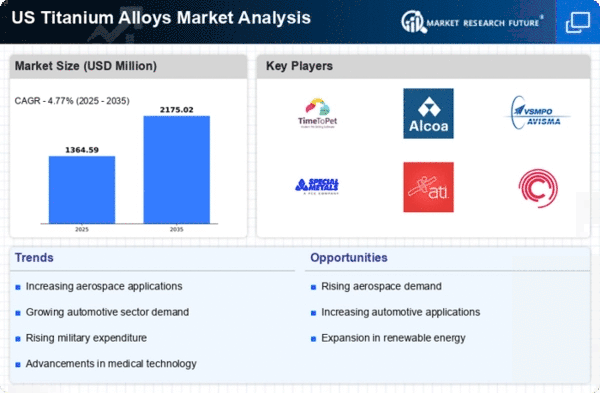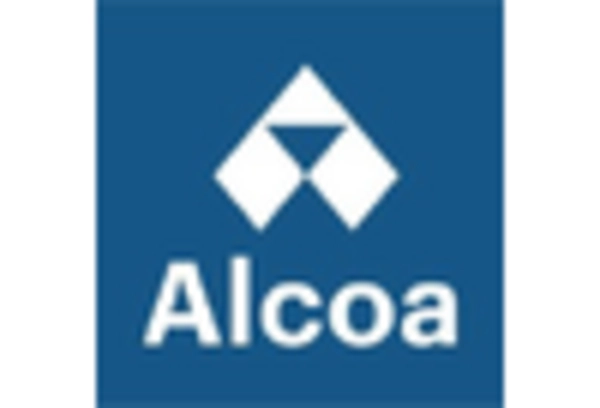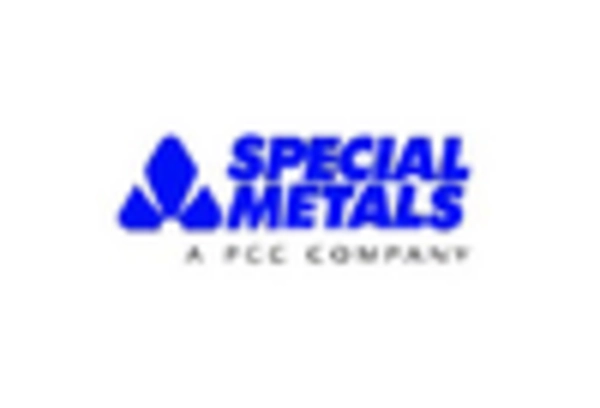The titanium alloys market is currently characterized by a dynamic competitive landscape, driven by increasing demand across aerospace, automotive, and medical sectors. Key players are actively pursuing strategies that emphasize innovation, operational efficiency, and strategic partnerships. For instance, Timet (US) has focused on enhancing its production capabilities through advanced manufacturing technologies, while Alcoa (US) is leveraging its extensive experience in metallurgy to develop high-performance alloys tailored for specific applications. These strategies not only bolster their market positions but also contribute to a more competitive environment, as companies strive to differentiate themselves through quality and technological advancements.In terms of business tactics, companies are increasingly localizing manufacturing to reduce lead times and optimize supply chains. This approach appears to be particularly effective in a moderately fragmented market, where the collective influence of key players shapes pricing and availability. The competitive structure is evolving, with larger firms like ATI (US) and Carpenter Technology (US) seeking to consolidate their market presence through strategic acquisitions and collaborations, thereby enhancing their operational efficiencies and market reach.
In October Haynes International (US) announced a significant investment in a new production facility aimed at expanding its capacity for high-performance titanium alloys. This move is likely to enhance their ability to meet the growing demand from the aerospace sector, where lightweight and durable materials are increasingly critical. The strategic importance of this investment lies in its potential to position Haynes as a leader in the high-end titanium market, catering to clients who prioritize quality and performance.
In September Special Metals (US) entered into a partnership with a leading aerospace manufacturer to develop next-generation titanium alloys. This collaboration is expected to leverage both companies' expertise, potentially leading to innovative solutions that address the stringent requirements of modern aerospace applications. The strategic significance of this partnership underscores the trend towards collaborative innovation, which is becoming a hallmark of the industry.
As of November the titanium alloys market is witnessing trends that emphasize digitalization, sustainability, and the integration of AI technologies. Companies are increasingly recognizing the importance of strategic alliances, which are shaping the competitive landscape by fostering innovation and enhancing supply chain resilience. Looking ahead, it appears that competitive differentiation will increasingly hinge on technological advancements and the ability to deliver reliable, high-quality products, rather than solely on price. This shift suggests a transformative phase in the market, where innovation and operational excellence will define success.
















